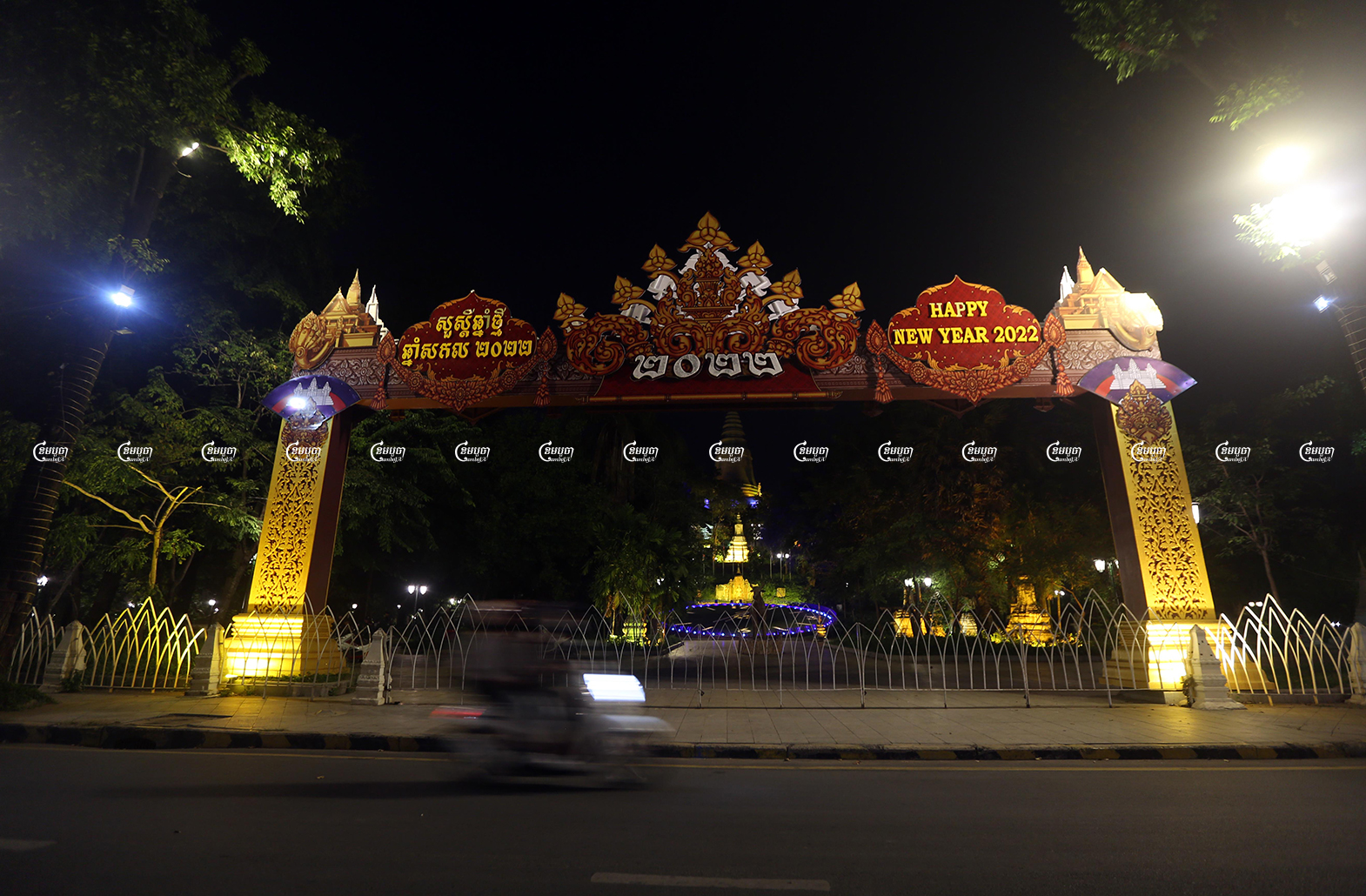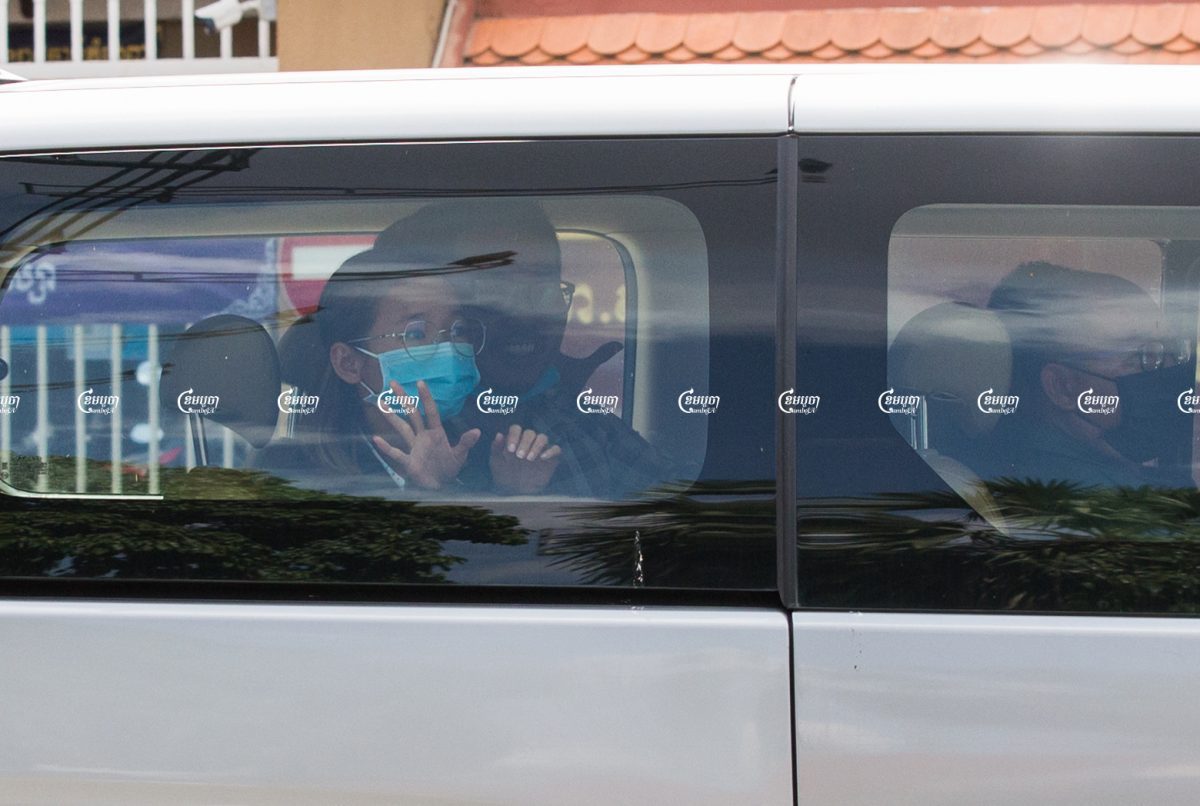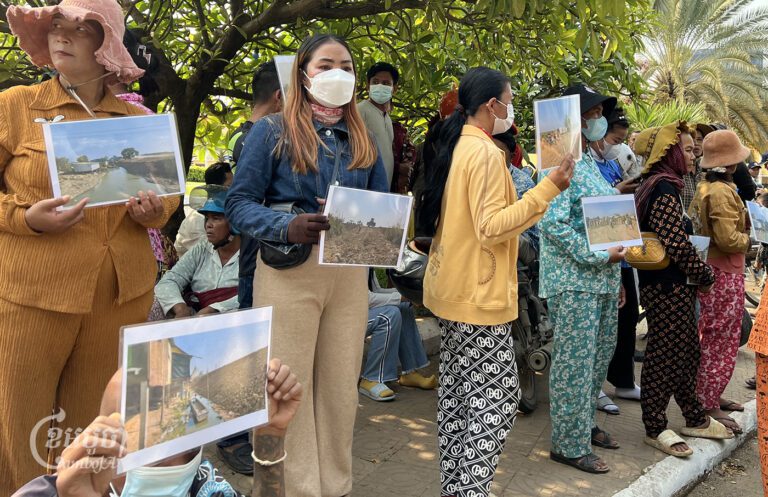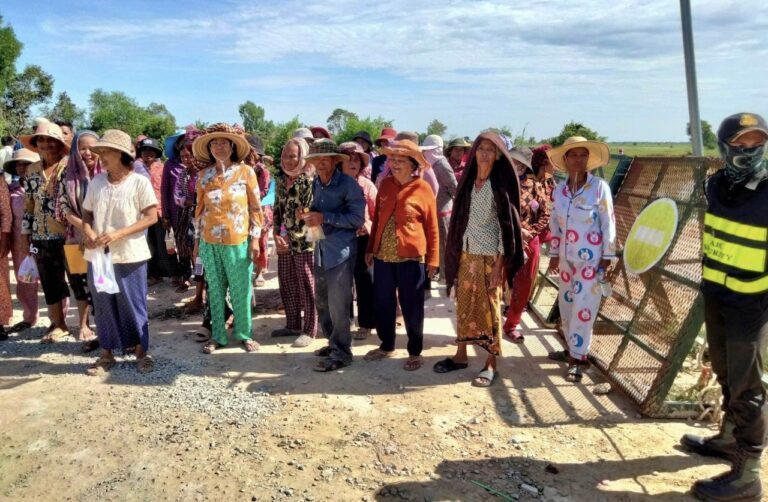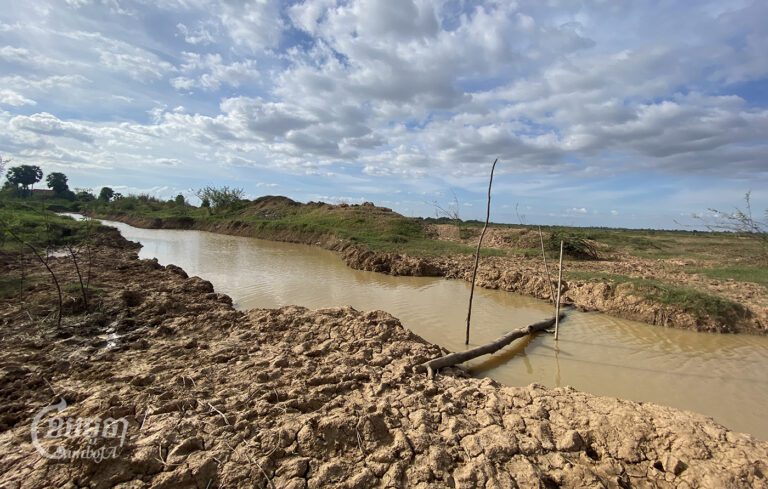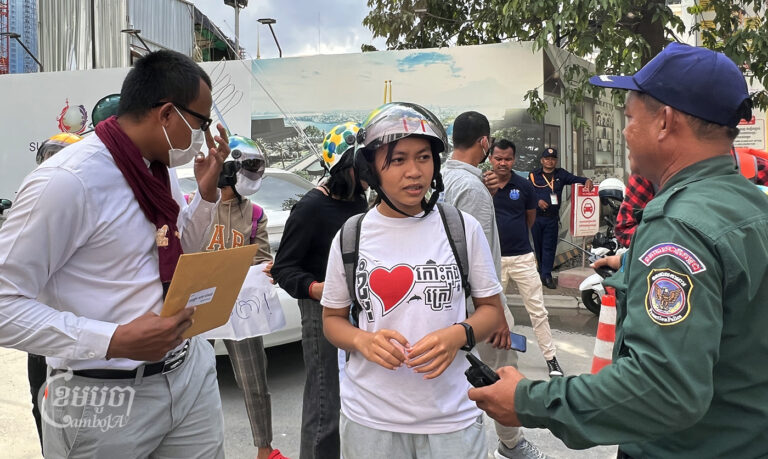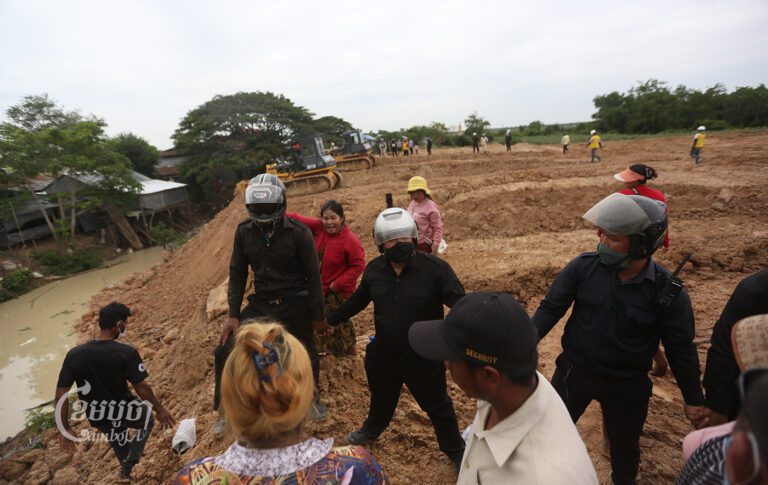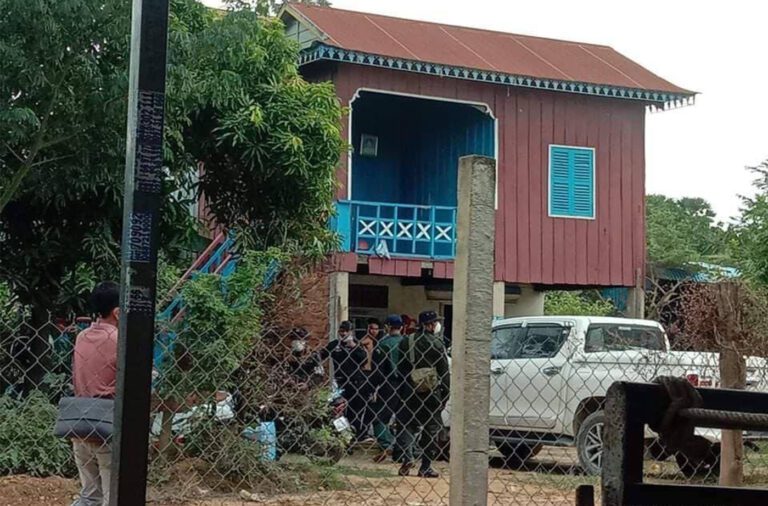As people in Cambodia and around the world prepare to welcome the new year, activists in the kingdom say there’s little to celebrate in the past year of human rights abuses.
Representatives of non-governmental organizations reflecting on 2021 told CamboJA that the rights situation deteriorated overall in that time as the government continued using repressive tactics to silence critical voices such as rights defenders, political opponents and journalists. This year also marked the start of the mass trial of 139 political opposition supporters, most notably jailed activists of the outlawed CNRP.
The home of An Chanthou will likely be quiet as the clock strikes midnight and ends 2021. Chanthou is married to Lak Keang, a former CNRP commune chief from Bit Traing commune in Preah Sihanouk province, who has been imprisoned at Prey Sar since his September arrest.
Police brought Keang to Phnom Penh for questioning over a land dispute and allegations of illegal encroachment of state land, leaving Chanthou and the couple’s two young children to consider the new year without him.
“We are always emotional and missing him, but we don’t know how to do [without him],” and “I have no family gathering to countdown [to the new year], I’ll just do simple things here.”
Keang is hardly the only activist who will be imprisoned as the calendar turns over.
The past year also saw the conviction of prominent union leader Rong Chhun after his 2020 arrest, as well as legal action against numerous environmentalists and other members of youth-oriented groups such as Mother Nature, Khmer Thavarak and the Khmer Student Intelligence League. Though many political prisoners were released in November shortly after the U.S. stepped up diplomatic pressure and sanctions against Cambodia, many remain imprisoned.
Mother Nature activist Thon Ratha said the government has steadily pressured critical voices, especially through the detention of environmentalists. Ratha said restrictions on freedom of expression have only worsened through 2021.
“It has been clearly shown that freedom of expression is backsliding in an extreme way that has impacted the rights of citizens who dare to speak the truth in Cambodia,” he said.
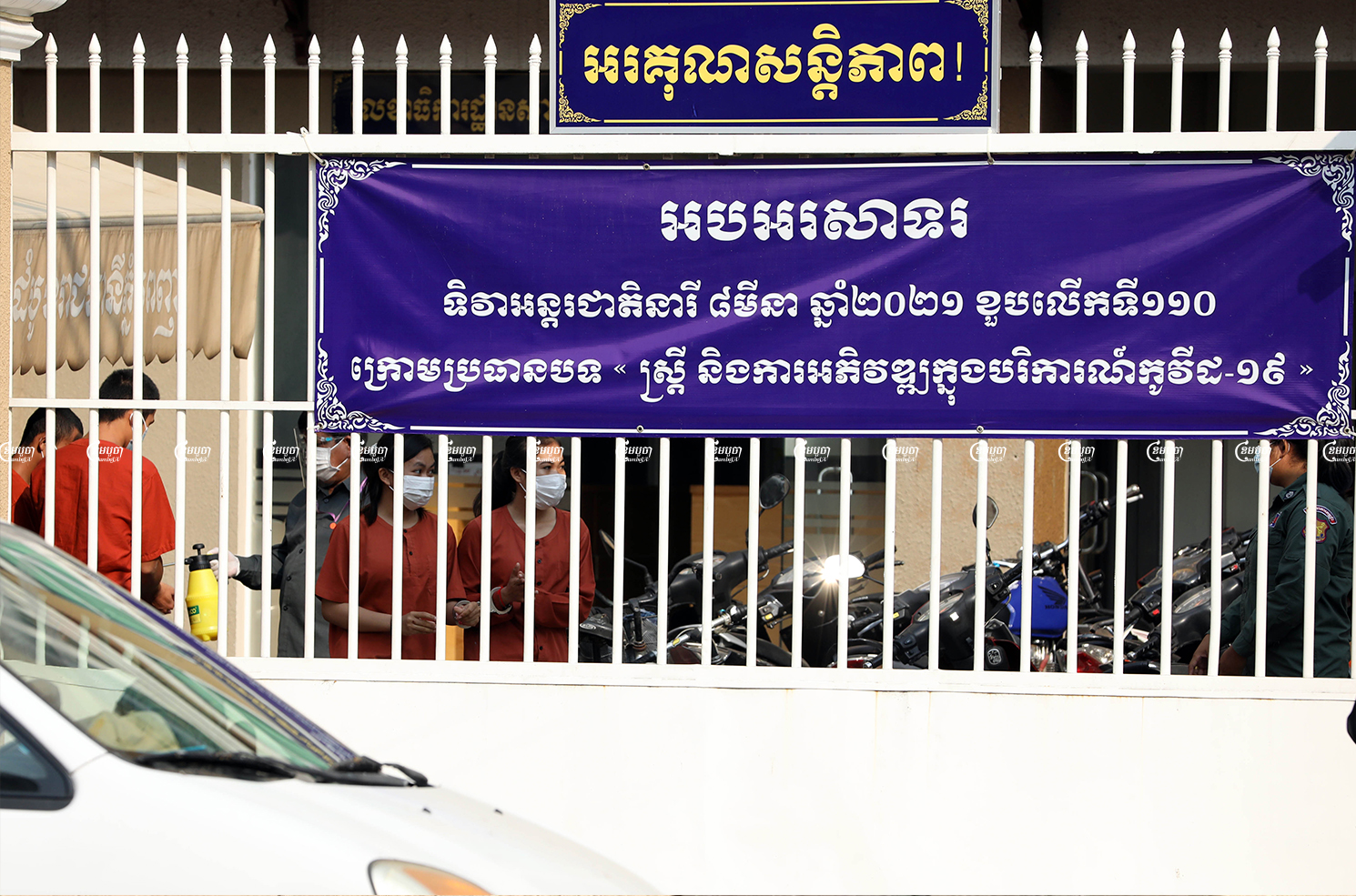
Ratha was imprisoned in September 2020 and was convicted months later in May of charges of incitement along with five other environmental activists over plans for a one-woman march to raise awareness of the impact of filling in lakes for development in the capital. He was released on November 12 but has also been handed an additional “plotting” charge by the Phnom Penh Municipal Court.
“For me, I am concerned when the court isn’t independent and is biased to the people who have the power to make accusations against us,” Ratha said, adding that rights advocates only expected to be treated in line with international law and universal human rights concepts.
“My commitment remains in exercising my opinion related to environmental issues, because these acts [of speech] are not wrong under the law.”
He does not expect the overall situation to improve next year. And as for his fellow activists in legal peril, Ratha said that even if they were convicted and released from prison, they would remain under court supervision that could put them right back behind bars at any time.
Rights organizations have decried such legal tactics as having a definite chilling effect on civil society.
Ny Sokha, president of the rights group Adhoc, said 2021 was a year of serious rights violations across the board, especially given the ongoing political crisis sparked by the court-ordered dissolution of the main opposition, the CNRP.
“We have considered that the ruling party is still worried about the activity of the defunct opposition CNRP, who have restarted their actions,” Sokha said.
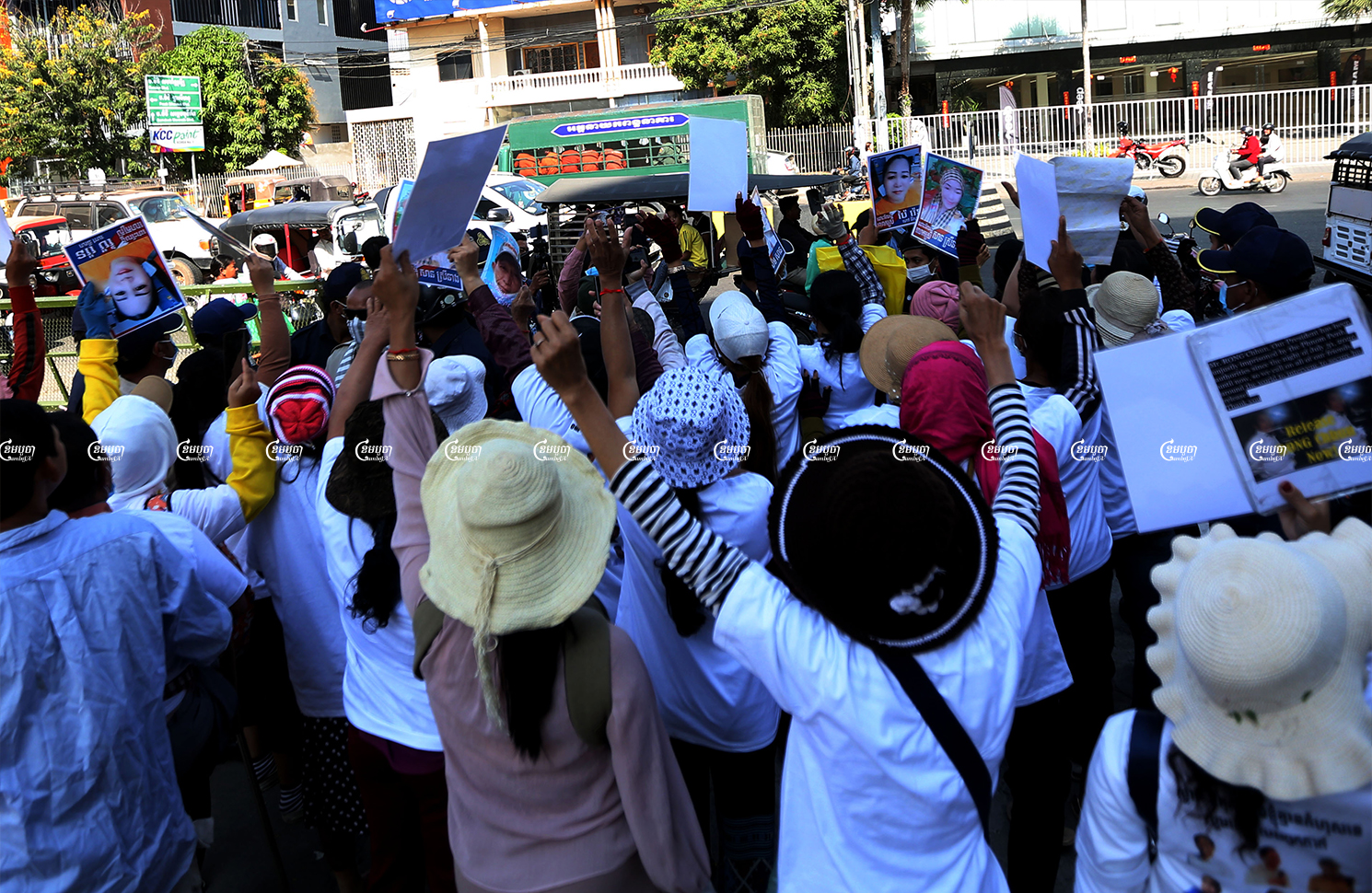
Civil society group also denounced the deportations of three members of the outlawed CNRP from Thailand to Cambodia, stating the deportees were refugees as recognized by the United Nations High Commissioner for Refugees (UNHCR).
“I think if the situation remains like this, especially for the upcoming commune election, we are concerned about the results of the election,” Sokha said, adding that impartial and free elections cannot happen in a threatening, intimidating environment.
He also said that the actions of the Cambodian government could lead to more sanctions down the line, particularly from the E.U.
The various problems with politics and governance have manifested in land disputes across the country.
The past year marked numerous forced evictions that happened with little to no compensation for victims. Though the government has laid out measures to prevent land grabs and mitigate disputes, there remain signs of land encroachment in multiple provinces, as well as unsolved problems related to decades-long disputes. Many of these land clashes stem from economic land concessions granted by the state to private firms for investment and development, as well as for industrial-level agriculture.
Sokha from Adhoc said land disputes are often intertwined with corruption.
“We have seen high ranking officials and rich, powerful people continue to occupy community land, as well as arrest people who have been involved in land disputes,” he said.
In September, two farmer community representatives were charged with criminal violations and released on bail in Svay Rieng in connection to a dispute sparked by a canal restoration project. The pair were arrested under the so-called COVID law governing public activity during the pandemic.
Meanwhile, in Kandal province, police in the past year have detained dozens of villagers who were protesting against land clearances to make way for a new mega-airport project valued at approximately $1.5 billion and to be developed by the politically well-connected firm Overseas Cambodia Investment Corporation (OCIC).
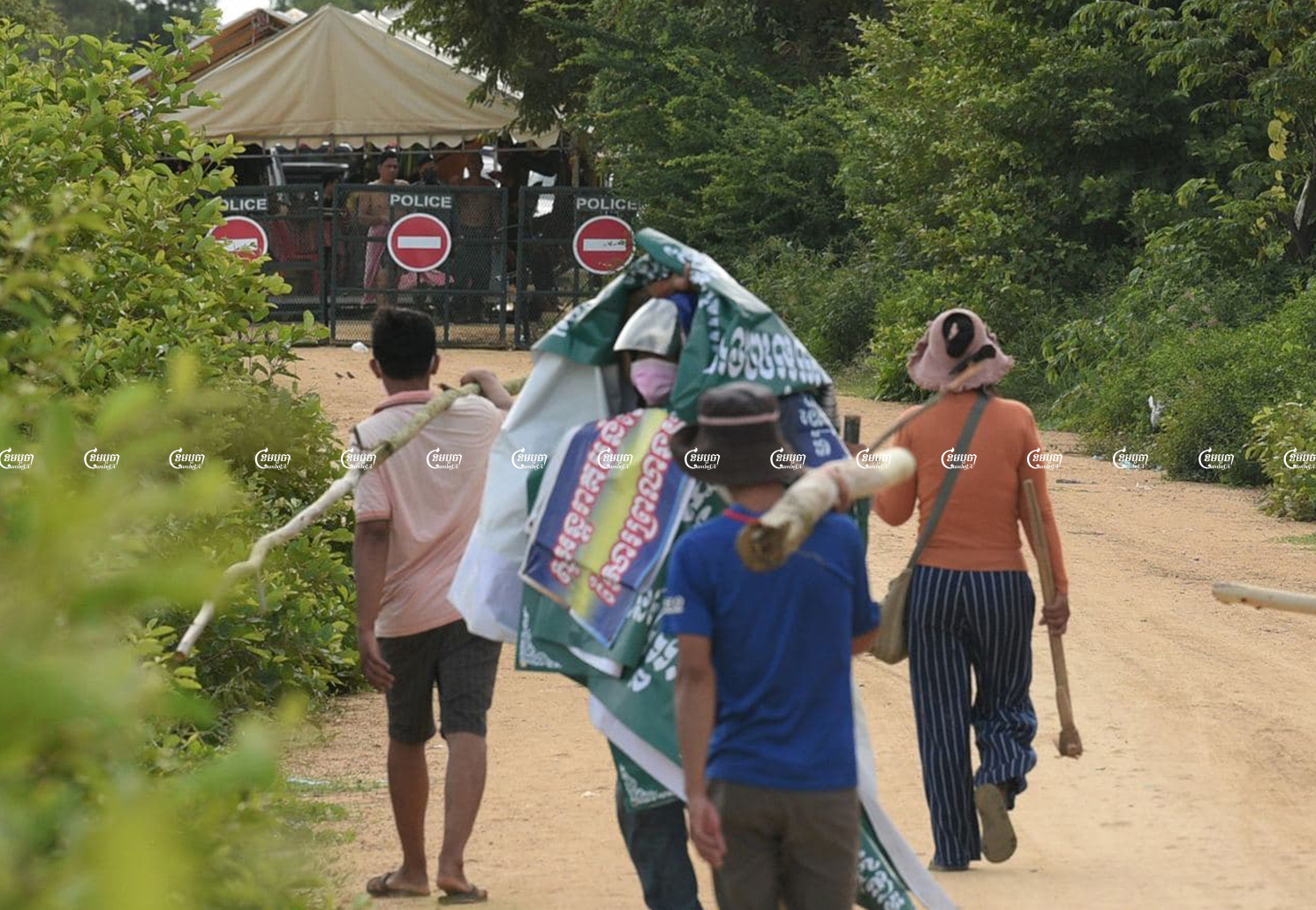
Chak Sopheap, the executive director of the Cambodia Center for Human Rights (CCHR), said the curtailment of human rights and civic participation is especially concerning going into 2022 as the commune elections are upcoming and will shape the landscape for the national elections in 2023.
“These trends raise grave concerns over the future of free and fair elections where Cambodians should be empowered to choose their representatives who will best represent their interests to ensure that democracy and human rights in the country can progress and flourish,” she said.
Sopheap said human rights activists and political opponents operate in an increasingly dangerous and restrictive environment in which imprisonment has become a common penalty for those who do not align with the status quo or who attempt to defend civil rights in Cambodia.
“If the dire human rights situation persists, faith in the Cambodian political system will wane and more Cambodians will lose confidence that the government will serve as public servants with their best interests in mind,” she continues.
However, Chin Malin, the spokesman for the Justice Ministry and vice president for the state-run Cambodian Human Rights Committee, has consistently rejected any suggestion that the space for civil rights has closed at all. Throughout the year, Malin has instead accused rights groups and activists of opposing the government as a whole. He has also suggested the rights situation has improved through 2021, even as the state continued legal campaigns against many activists.
“Generally, the situation of human rights and democracy, freedom of space is not as bad as what civil society has accused,” he said.
“The accusation isn’t related to the human rights situation or democracy, because we have taken legal action against their targeted group, or their companions, and they have no legal evidence in defending themselves besides putting forth an accusation,” Malin said.
He requested civil society groups to change their strategy in response to the government, stating that authorities have acted legally to punish activists who broke the law.
But Malin’s regular statements have found little support in civil society circles.
Am Sam Ath, deputy director of the rights group Licadho, said the past year marked a significant backsliding for Cambodia’s situation for democracy and human rights despite demands for improvement from the national and international communities.
“We have seen citizens’ rights and political rights in extreme decline,” he said, noting that the government’s claims of merely implementing law against activists have not been accepted under international norms.
Sam Ath stressed that political factors have been the driving cause of this rights decline and called on the government to reverse its restrictive course.
